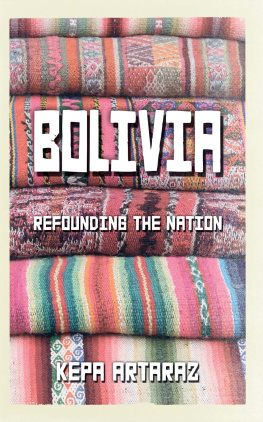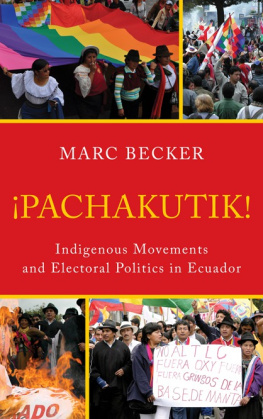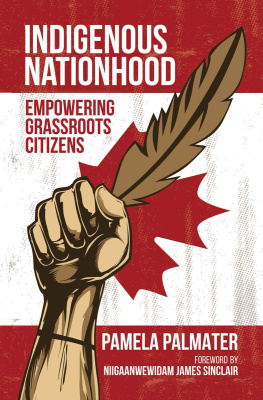Pachakutik and the Rise and Decline
of the Ecuadorian Indigenous Movement
Ohio University Research in International Studies
This series of publications on Africa, Latin America, Southeast Asia, and Global and Comparative Studies is designed to present significant research, translation, and opinion to area specialists and to a wide community of persons interested in world affairs. The editor seeks manuscripts of quality on any subject and can usually make a decision regarding publication within three months of receipt of the original work. Production methods generally permit a work to appear within one year of acceptance. The editor works closely with authors to produce a high-quality book. The series appears in a paperback format and is distributed worldwide. For more information, contact the executive editor at Ohio University Press, 19 Circle Drive, The Ridges, Athens, Ohio 45701.
Executive editor: Gillian Berchowitz
AREA CONSULTANTS
Africa: Gillian Berchowitz
Latin America: Brad Jokisch, Patrick Barr-Melej, and Rafael Obregon
Southeast Asia: William H. Frederick
The Ohio University Research in International Studies series is published for the Center for International Studies by Ohio University Press. The views expressed in individual volumes are those of the authors and should not be considered to represent the policies or beliefs of the Center for International Studies, Ohio University Press, or Ohio University.
2011 by the
Center for International Studies
Ohio University
All rights reserved
20 19 18 17 16 15 14 13 12 11 5 4 3 2 1
Printed in the United States of America
The books in the Ohio University Research in International Studies Series are printed on acid-free paper

Library of Congress Cataloging-in-Publication Data
Mijeski, Kenneth J.
Pachakutik and the rise and decline of the Ecuadorian indigenous movement / Kenneth J. Mijeski and Scott H. Beck.
p. cm. (Ohio university research in international studies. Latin America series ; no. 51)
Includes bibliographical references and index.
ISBN 978-0-89680-280-3 (soft cover : alk. paper) ISBN 978-0-89680-477-7 (electronic)
1. Movimiento de Unidad Plurinacional Pachakutik-Nuevo Pas. 2. Indians of South AmericaEcuadorPolitics and government. 3. Indians of South AmericaEcuadorGovernment relations. 4. Politics and cultureEcuador. 5. Social changeEcuador. 6. Political activistsEcuador. 7. Indian activistsEcuador. 8. EcuadorEthnic relations. 9. EcuadorPolitics and government. I. Beck, Scott H. II. Title.
F3721.3.P74M54 2011
986.6'01dc22
2010051508
Preface and Acknowledgments
In 1995 the original goal of our research in Ecuador was to work with Ecuadorian students who were studying in a university bilingual educational program to become teachers in their rural communities. We were planning to train them to do interviews in the communities to gain insight into the extent to which indigenous people were conscious of and in agreement with the demands that the Confederation of Indigenous Nationalities of Ecuador (CONAIE) had been making on their behalf since the late 1980s. For a number of reasons, it began to look like that goal would not be achieved.
About the time that we realized we would likely not be able to pursue that project, CONAIE announced that it was creating, with the cooperation of the Coordinator of Social Movements, a new political movement (or party) to contest elections. This announcement caught us by surprise, particularly since CONAIE had eschewed political party participation, claiming that Ecuadors parties served only the countrys elites while ignoring the vast majority of its citizens, most certainly its indigenous peoples. The announcement also piqued our interest. Why would CONAIE make such a quick about-face regarding electoral politics? What might that action imply for the future of the indigenous movement? Hence began our fifteen-year journey to find answers to the first and, more fundamentally, the second of those questions.
That journey would not have been possible without the assistance, financial and otherwise, of a number of people and institutions. We are grateful for several grants from the Research Development Committee of East Tennessee State University as well as travel grants from ETSUs Office of International Programs that made field research possible for much of the that time. Scott Beck also held a Fulbright Research Fellowship for an extended period of field work in 2000. For the countless hours of compiling and coding election data we thank Lisa Moss, Kit Coomer Dulin, Deena Shough, and Brittany Head.
Numerous individuals have been instrumental and supportive in our endeavor. Anthony Cavender introduced us to Ecuador via his fieldwork in Guaranda. Marc Becker selflessly offered advice and shared with us his substantial knowledge of the countrys indigenous peoples. The late Donna Lee Van Cott also displayed what academic collegiality is all about, graciously commenting on our earlier essays and sharing her field notes. Manuel Albn, in addition to arranging numerous interviews, helped make Guaranda our home away from home. Our colleagues at the Universidad Estatal de Bolvar in Guaranda, especially Gabriel Galarza and Joscelito Solano, provided a collegial and supportive environment. Two Fulbright Program directors in Quito, Gonzalo Cartagenova and Susana Cabeza de Vaca, provided us much appreciated support and advice and directed us to some fine restaurants. Enrique Ayala, rector of the Universidad Andina Simn Bolvar, offered an academic home to Scott Beck while on his Fulbright fellowship. Catherine Walsh, Csar Montfar, Virginia Alta, and Jacque Pabn, also at UASB, shared their expertise and insights. Jos Tern Varela of Ecuadors Supreme Electoral Tribunal gifted us with lots of election data and advice. Carolina Reed Jijn and Francisco Carrin of Hbitus supplied us with data sets for estimating the indigenous population. Without the many activists, political analysts, and politicians, both within and outside the indigenous movement, who gave so kindly of their time, this project would not have been possible.
Portions of this book appeared in different form in The Electoral Fortunes of Ecuadors Pachakutik Party: The Fracaso of the 2006 Presidential Elections, Latin Americanist 52, no. 2 (June 2008): 4159; The Indigenous Vote in Ecuadors 2002 Presidential Election, Latin American and Caribbean Ethnic Studies 1, no. 2 (September 2006): 16584 ; Ecuadors Indians in the 1996 and 1998 Elections: Assessing Pachakutiks Performance, Latin Americanist 47, nos. 34 (WinterSpring 2004): 4674. We extend our appreciation to the anonymous reviewer for helpful suggestions to improve this manuscript. We sincerely appreciate Gillian Berchowitz for believing in this project from the beginning, for her patience, and for her skillful management of the editorial process. For their forbearance and encouragement during our extended absences from home, including weekends, holidays, and spring breaks spent in our university offices analyzing data and writing, we are deeply indebted to our wives, Kendra Mijeski and Rubye Beck, and we dedicate this book to them.








